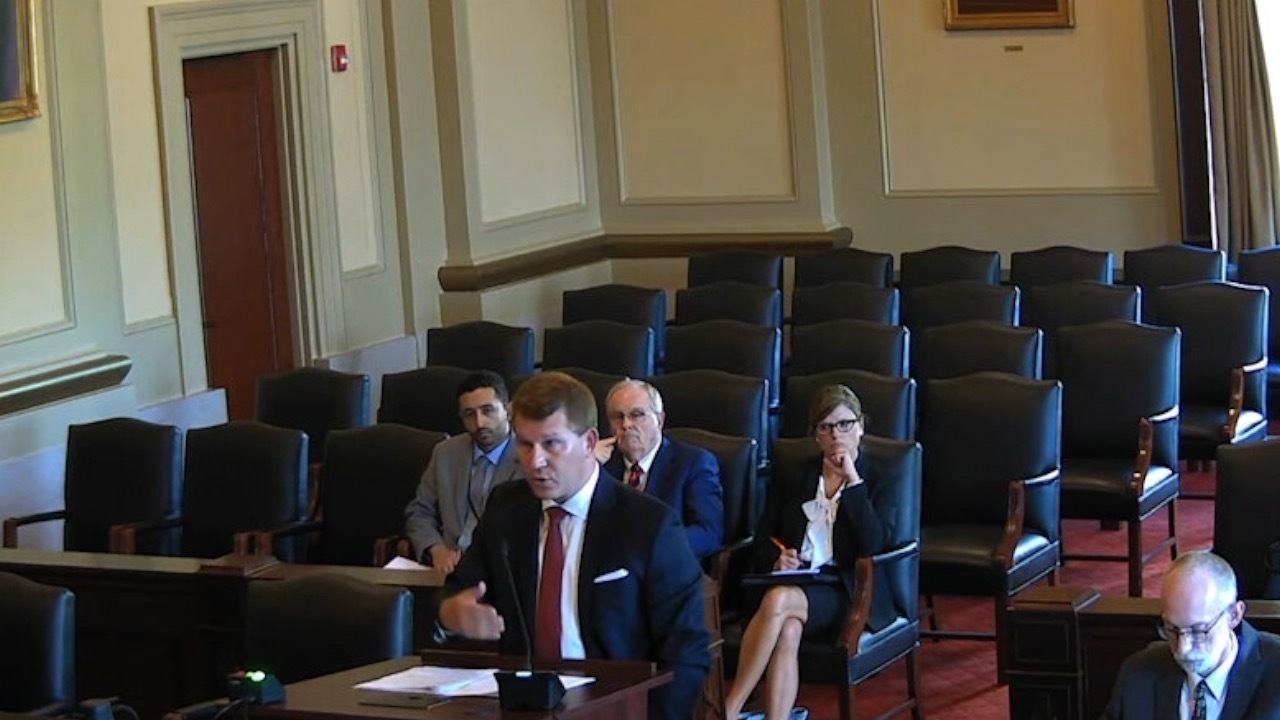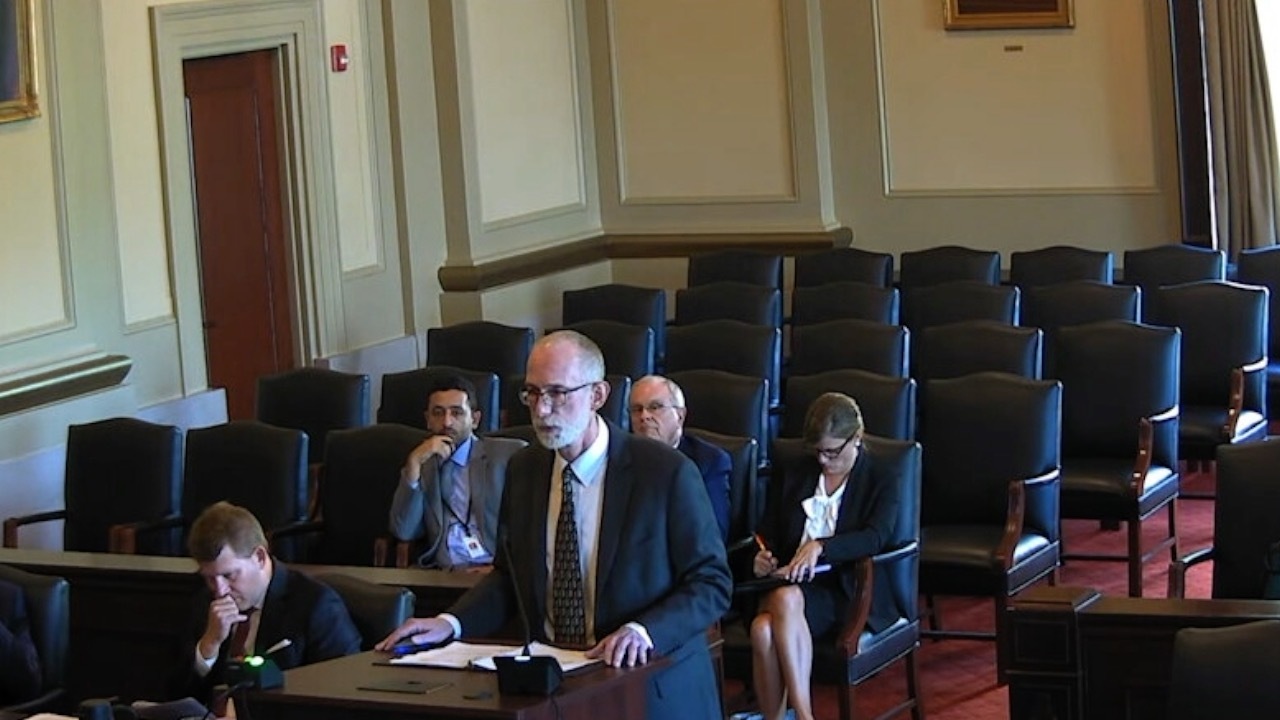- A three-judge panel of the NC Court of Appeals will decide whether state environmental regulators followed the proper procedure when adding conditions to state animal waste permits.
- The court has blocked the conditions during an appeal from the North Carolina Farm Bureau Federation. Farm Bureau argues that the state Department of Environmental Quality should have subjected the conditions to the state rulemaking process.
- A Superior Court judge ruled in favor of the department.
A three-judge state Appeals Court panel will decide in the months ahead whether environmental regulators failed to follow the proper process when adding new conditions to state animal waste permits.
The results of the judges’ deliberations could affect permits for 2,000 hog, cattle, and poultry farms across North Carolina. Each uses a “lagoon-and-spray-field system” to address animal waste.
The NC Farm Bureau Federation contended during an hourlong oral argument session Wednesday that the Department of Environmental Quality should have used the state’s rulemaking process before adopting three new general permit conditions for affected farms.
The disputed conditions involve groundwater monitoring in the 100-year flood plain, phosphorus loss assessment tests on some fields, and filing of annual reports that could be made public.
“If the court doesn’t hold DEQ accountable here, they can continue to add regulatory burdens onto farmers through the general permit process, rather than going through rulemaking,” said Jake Parker, secretary and general counsel for the Farm Bureau.

The Farm Bureau also offered a “sue-and-settle” argument. DEQ adopted the three conditions after a 2018 federal complaint prompted negotiations between regulators and hog farm critics. Those negotiations excluded farmers.
“We engage with the department all the time,” Parker said. “That’s part of what Farm Bureau does. We’re a public policy organization. We lobby. We engage with regulators. But we aren’t engaged, as is the situation here, in a Title VI complaint process — an adversarial process that could affect the agency’s federal funding — and then using that as leverage to advance our policy goals. There’s a big difference there.”
DEQ countered that the challenged conditions aren’t rules because any farmer can seek an individual permit that might not include the condition. The department also pointed out that several other proposed conditions from the Title VI process never made it into the general permit.
“The Farm Bureau has made it clear in their time here that they do not like three of the many, many conditions that are in the animal waste permits. They do not think that the process of placing those conditions in those permits was fair to them. But the Farm Bureau’s generalized notions of fairness and their policy disagreements are not for this court to mediate,” argued Marc Bernstein, senior deputy attorney general at the NC Department of Justice.
“The question here is whether the agency did anything unlawful,” Bernstein added. “The Superior Court reviewed the facts and the law and determined that what the agency did was proper.”

Judge Fred Gore questioned a key point in Bernstein’s presentation about the challenged conditions. “Your argument is, ‘Well, not everybody has to get a general permit,’” Gore said. “But using your logic is dismissive of the fact that these should apply to every general permit, which they do. And if they do, then shouldn’t the normal rule application or implementation have gone through to attach to the general permits?”
Judge John Tyson tested Bernstein’s argument with a hypothetical situation outside the context of animal waste. “If I wanted to go get a driver’s license in North Carolina from the DMV, and the DMV imposed a condition — ‘I’m going to give you a driver’s license, but only if you go buy an electric vehicle’ — would that be legitimate?”
“Take it one step further. I want a driver’s license, but I don’t want to drive an electric car,” Tyson added. “You’re saying that the only way I could be exempt from that would be to go and apply for an individual driver’s license and not subject to the general rules.”
Despite his apparent skepticism, Tyson indicated to Parker that he wasn’t sure every condition of every animal waste permit would require a new rulemaking process.
“I go back to my earlier question about the agency having some discretion within the statutory framework to make decisions within a range of authority,” he said. “I guess I’ve got to reconcile that statutory authority and discretion with having to go through the rulemaking procedure every single time they want to implement some policy.”
A split 2-1 Court of Appeals issued an order in October 2022 blocking the rules from taking effect. That order is scheduled to remain in place during the Farm Bureau’s appeal.
The Farm Bureau started the legal fight in 2019. It argues that the disputed conditions were rules that should have proceeded through the state’s standard rule-making process, as set out in the state Administrative Procedure Act. The Farm Bureau also argues that the conditions first appeared in a “draft swine general permit that DEQ developed behind closed doors with several nonprofit organizations.” The complaint contends that DEQ never subjected that draft permit to mandated public review and comment.